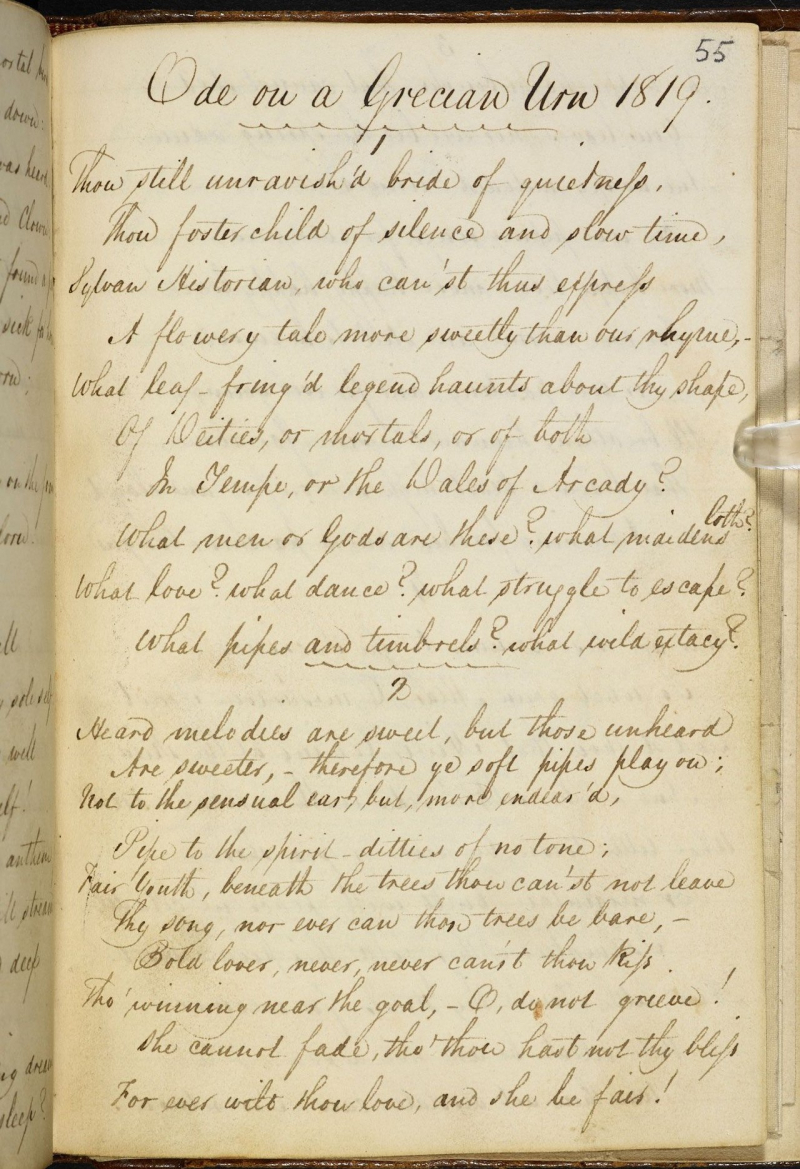Ode on a Grecian Urn
Excerpt:
O Attic shape! Fair attitude! with brede
Of marble men and maidens overwrought,
With forest branches and the trodden weed;
Thou, silent form, dost tease us out of thought
As doth eternity: Cold Pastoral!
When old age shall this generation waste,
Thou shalt remain, in midst of other woe
Than ours, a friend to man, to whom thou say'st,
"Beauty is truth, truth beauty,—that is all
Ye know on earth, and all ye need to know."
The Elgin Marbles are a group of sculptures made of marble by the Athenians that were removed from the Parthenon and transported to England in 1806. The Elgin Marbles encounter with Keats served as a major source of inspiration for this poem. The same was true of writings by Benjamin Haydon that discussed, among other things, Greek sacrifice and worship. At Haydon's workplace, Keats also had access to prints of Greek urns.
The speaker describes and criticizes the images of the Grecian urn in Ode on a Grecian Urn, particularly one in which a lover pursues his beloved and one in which a sacrifice is being performed. The scenes both perplex and fascinate the speaker. The urn has preserved them for hundreds of years, but they are still locked in time. The poem's final phrase, "'Beauty is Truth, Truth Beauty.' - that is all / Ye know on earth, and all ye need to know," has been highly discussed and is one of Keats' most famous lines.
The reviewers of the day did not like Ode on a Grecian Urn. Its fame has grown with time, and it is today considered one of the most famous odes in English literature.
Type: Ode
Published: 1819











